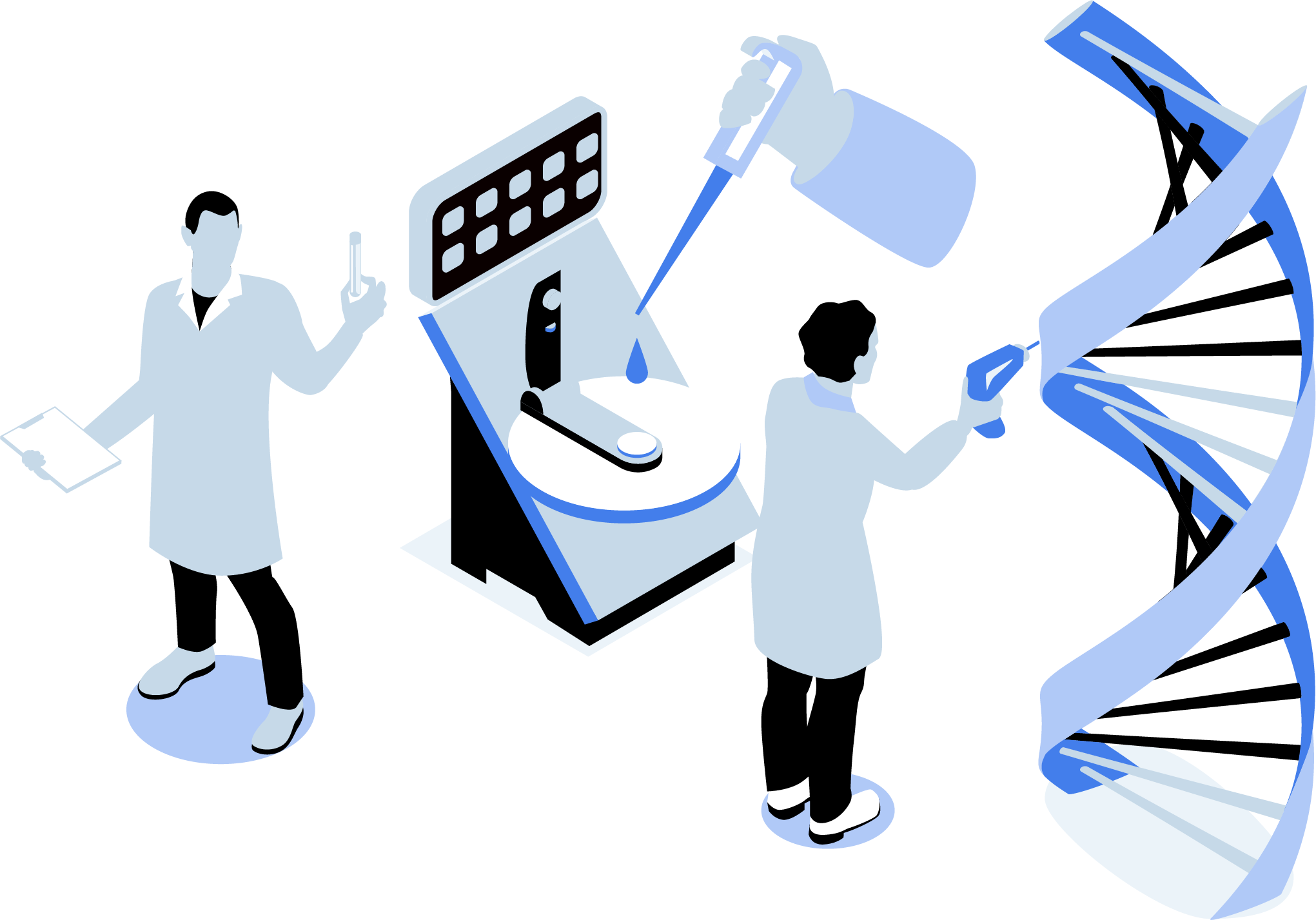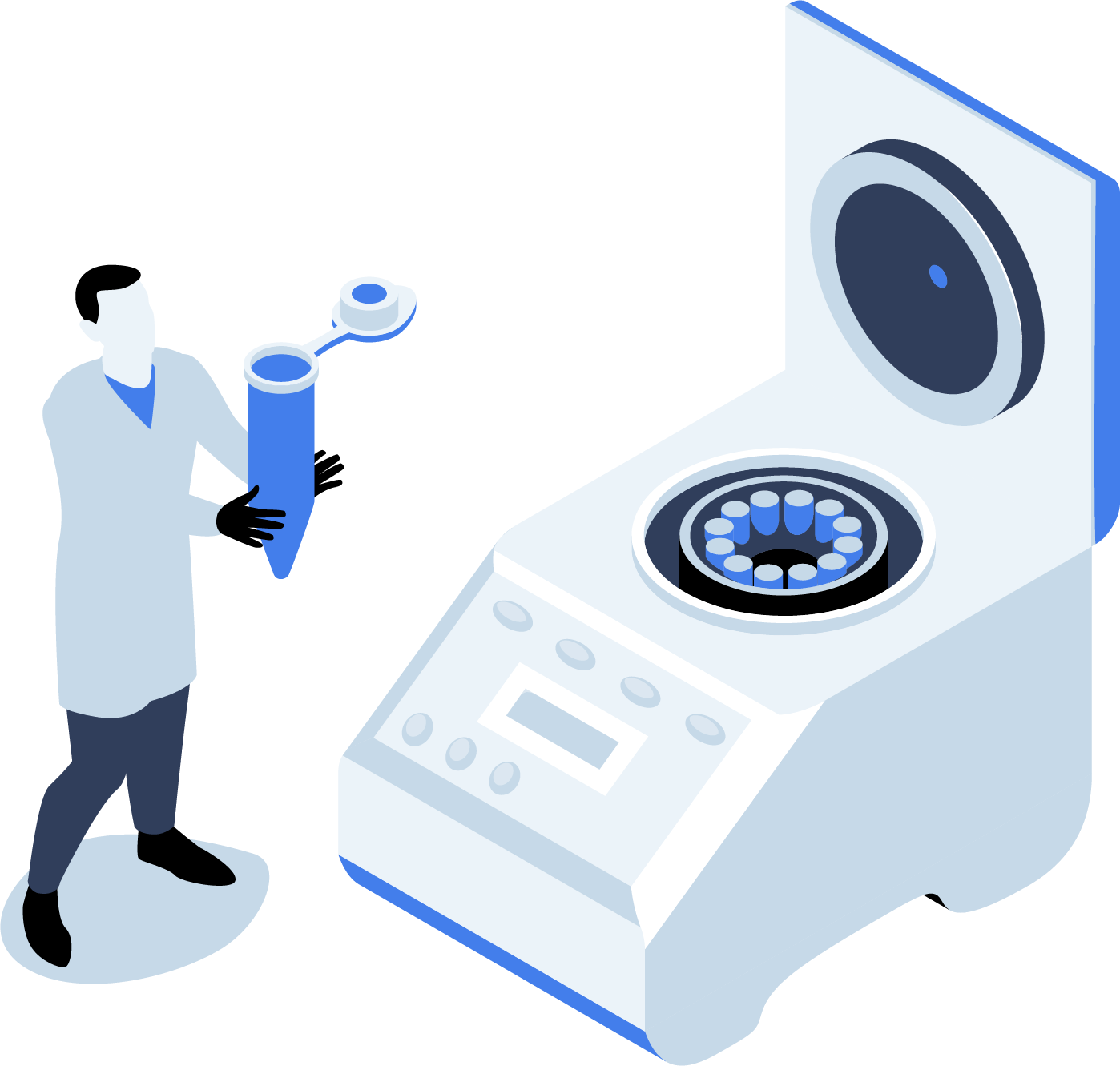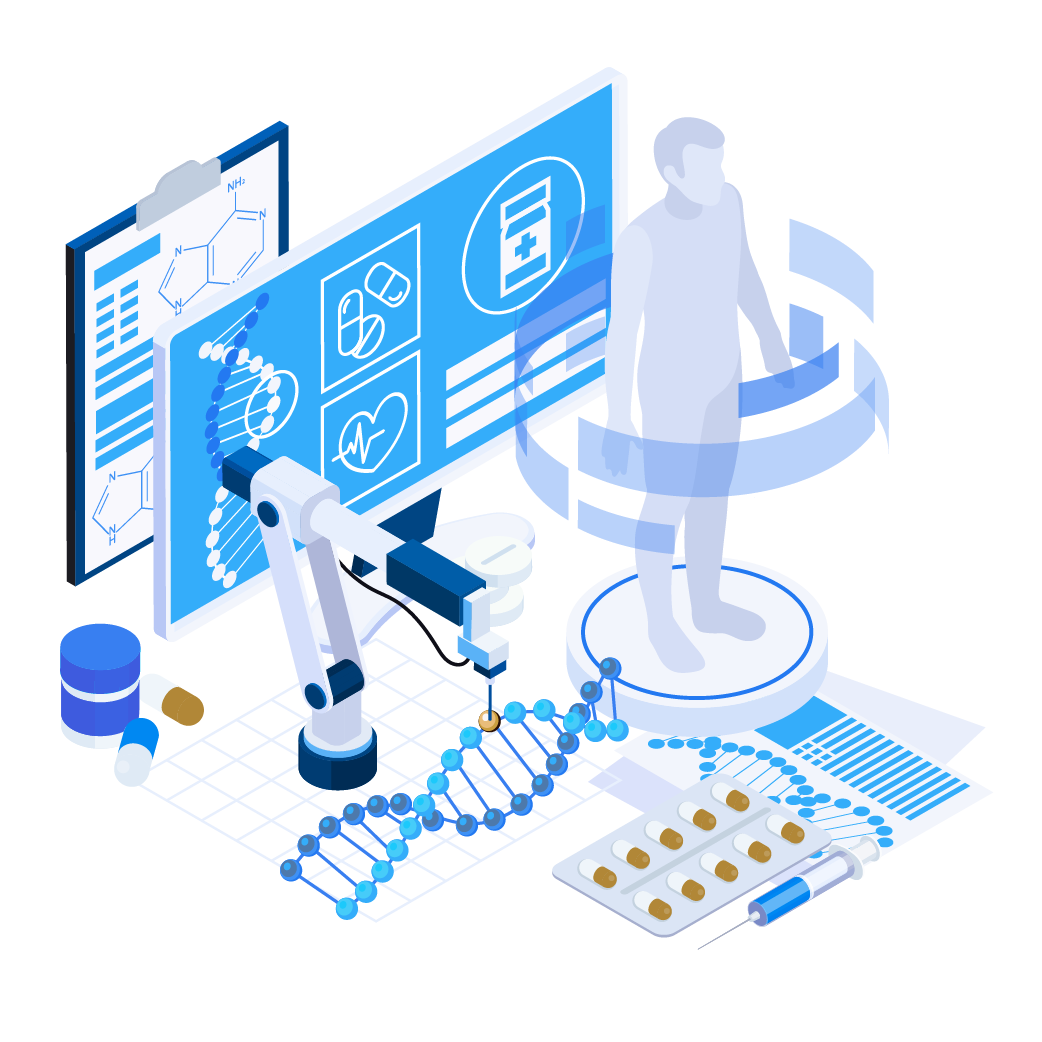




Next-generation sequencing (NGS) for improved cancer treatment.
Next-generation sequencing (NGS), also known as high-throughput sequencing, is a molecular methodology that enables rapid and simultaneous sequencing of millions of DNA molecules, determining the unique and specific order of nucleotide bases.
During personalized cancer treatment, this tool allows for the sequencing of a significant number of genes involved in cancer processes by comparing the DNA and tumor RNA sequences of the patient with a reference sequence. NGS technology complements the histopathological analysis and molecular analyses commonly performed for cancers, such as immunohistochemistry, PCR, and FISH.



NGS technology allows for the rapid decoding of an individual’s entire DNA at a relatively reasonable cost, providing numerous insights into their genetic heritage. This method could become an excellent diagnostic tool, enabling the determination of the most suitable treatment for each patient. Its advantages include improved therapeutic success rates, reduced overtreatment (thus avoiding unnecessary side effects), and financial savings.
Sample Collection
These analyses can be performed on various types of fixed and paraffin-embedded tissues (FFPE), including small biopsies. They can also be conducted on cytology materials. If necessary, manual microdissection (on tissue sections) will be performed to enrich the sample with tumor cells for analysis.
Analysis duration: 1-2 weeks.





